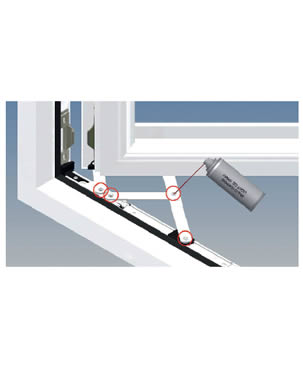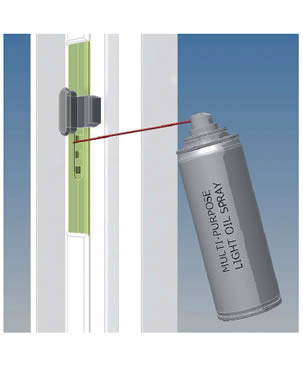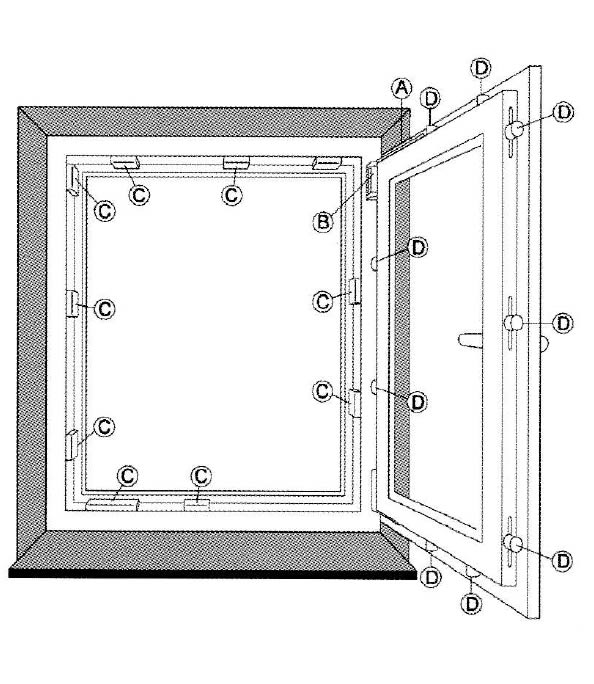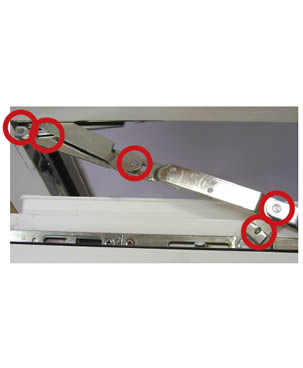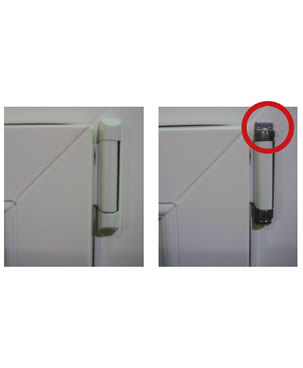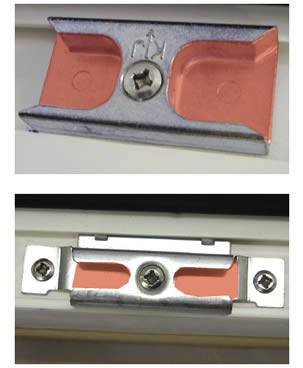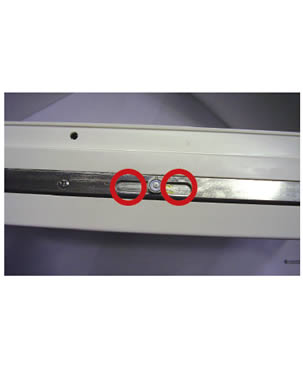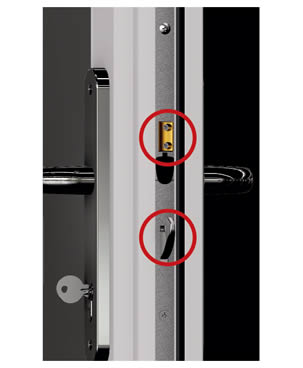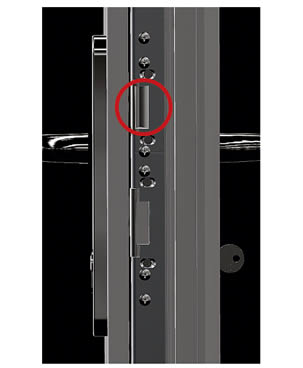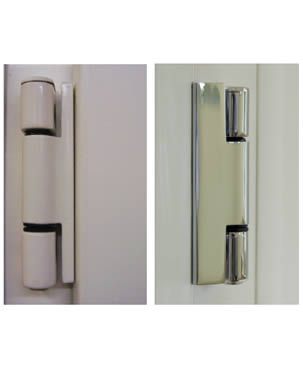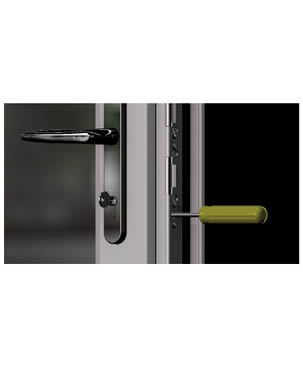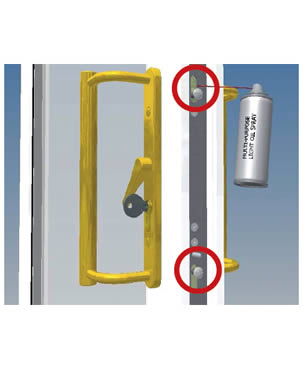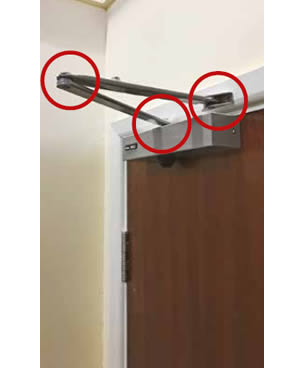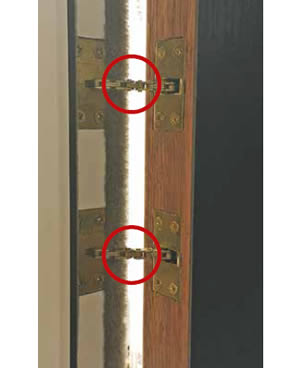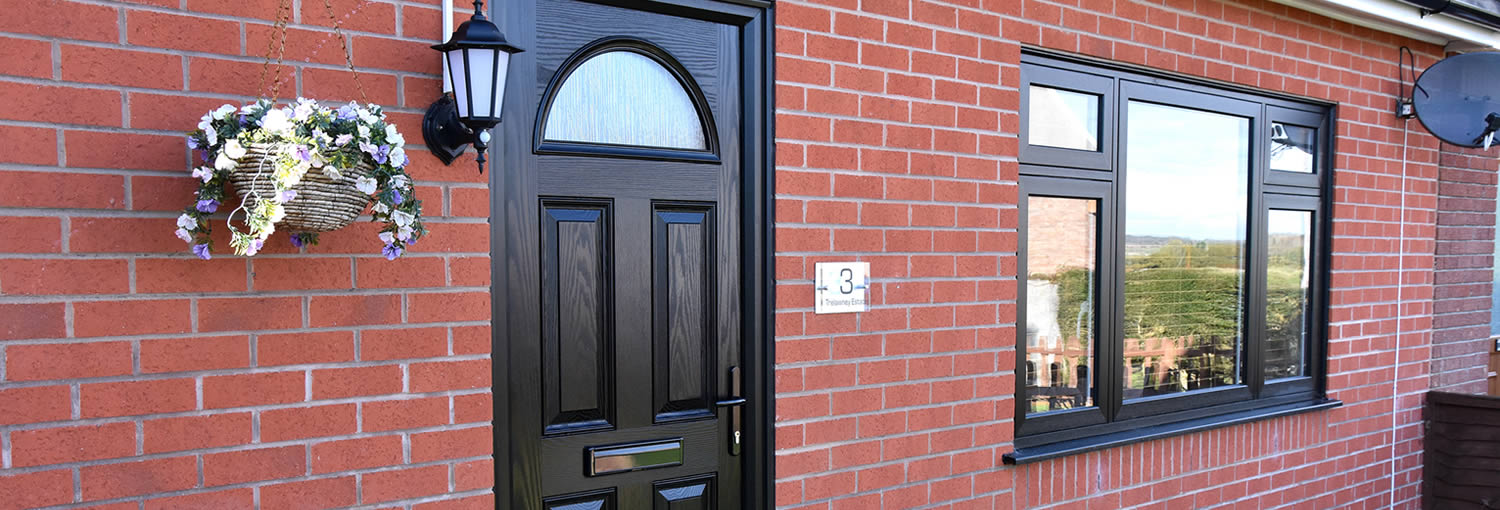
Lubrication
Window lubrication – all materials
You need to regularly lubricate the moving parts to keep the windows operating properly. You should carry out the following lubrication and maintenance checks once a year.
Please use a general light engineering oil with corrosion inhibitors such as 3-in-one® Multi Purpose Oil (available in aerosol can for convenience).
Please do not use solvent-based aerosol sprays such as WD40®. These contain chemicals that attack parts of the window. This can result in weakening and breaking parts of the window and may stop them working. They will also damage decorative finishes.
Door lubrication
For hinged doors, apply industrial Vaseline or other suitable grease to the hook and latch and striker surfaces (shown below). The lock gearbox has grease applied when it is made, which is designed to lubricate the lock for its life span.
You should keep lock and keep surfaces that you can see clean from dust and dirt by wiping with a clean, damp cloth.
Please do not add oil to the gearbox as this will dissolve the grease and reduce the life span of the lock.
